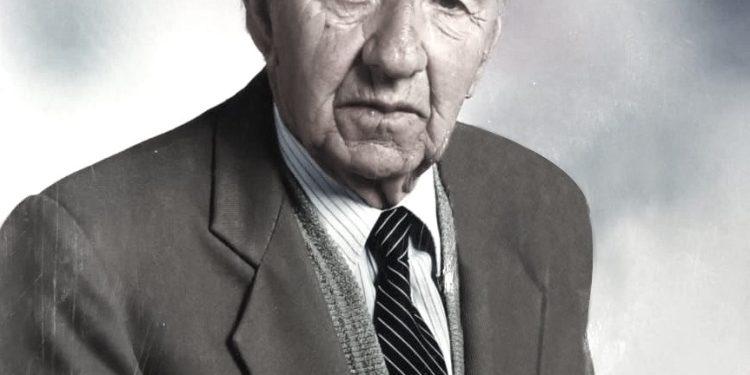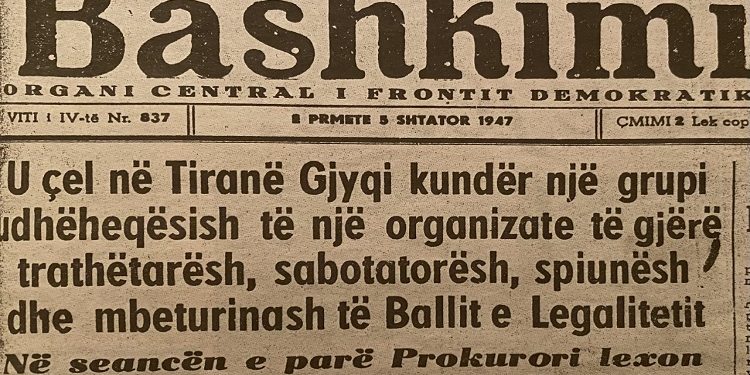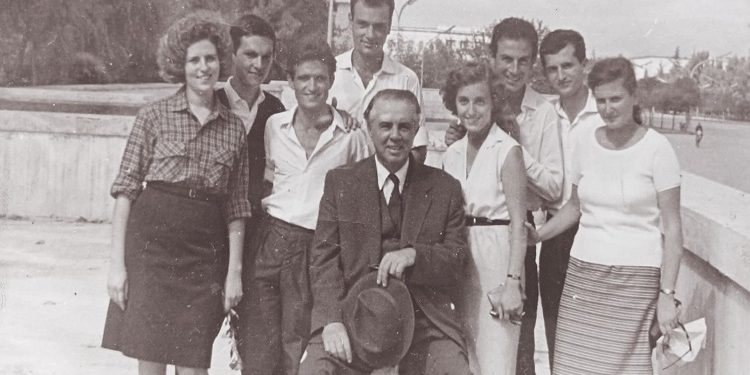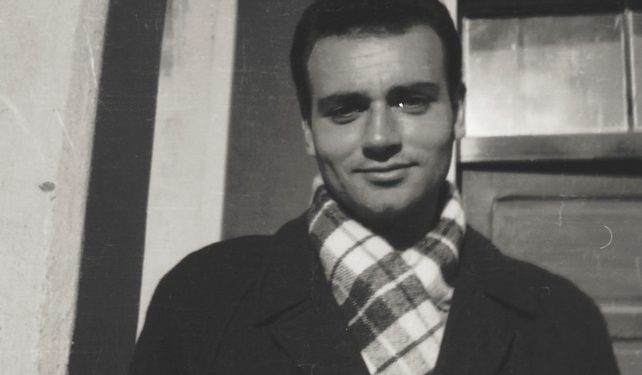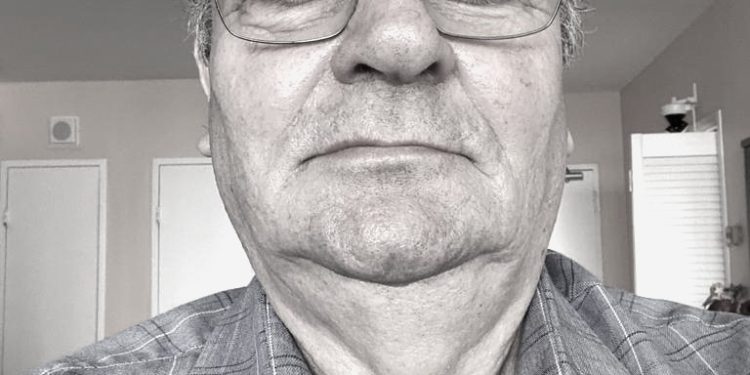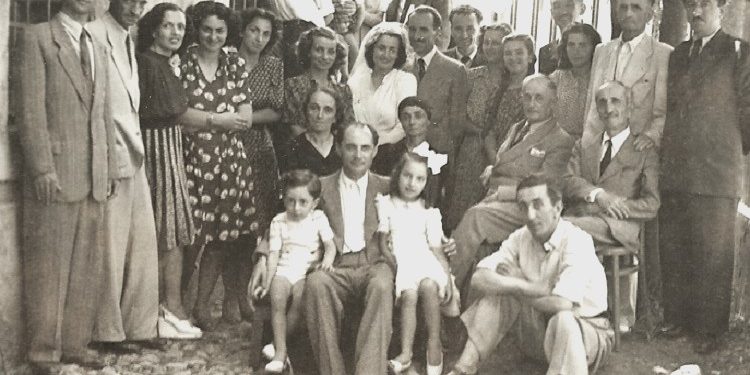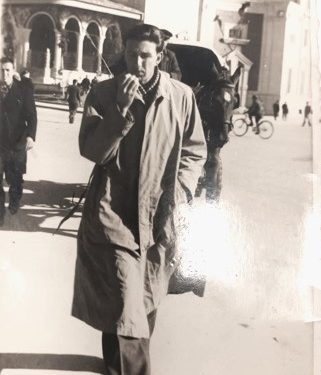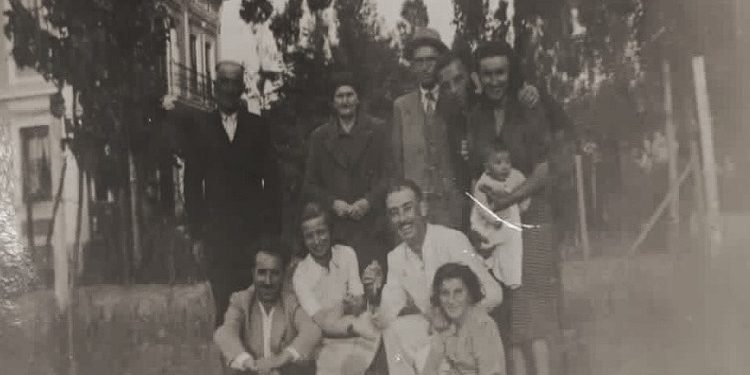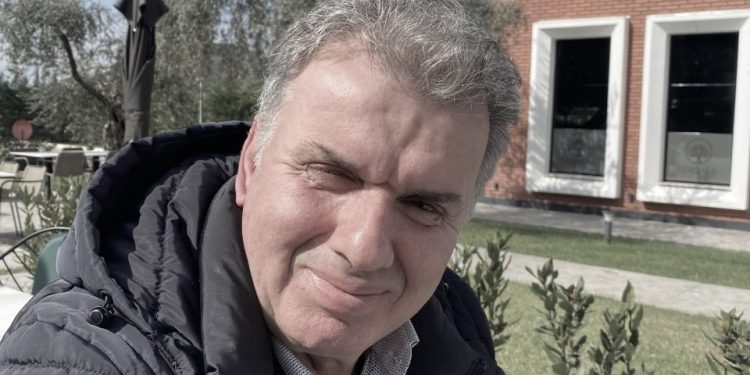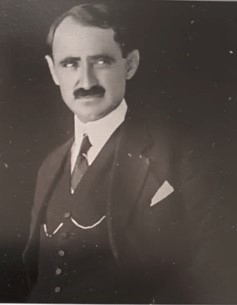From Uvil Zajmi
The second part
Memorie.al / He were only 3 months old, newly born, from the day he was separated from his father, whom he never saw, never knew, and never met. Left an orphan with only his mother, then childhood, adolescence, youth, a boy with a shot father, a persecution that followed him for many years. With little information from what happened with his father, he could not even mention his name, because as a legacy, a memory, he had left his last name, a wristwatch, and his diploma. With the mother, a noble woman, who kept quiet the drama that struck her when she was a young, beautiful girl, newly married, and with a newborn child. A long ordeal, from the arrest of the husband, the investigation, the court process, the punishment, then, life amidst suffering, and raising the child without a father.
Continues from last issue
This is the story of Artan Kokoshi, the son of Abdyl Kokoshi, sentenced to be shot in 1947, with the “Trial of the deputies”. Years ago he left Shkodra and Albania for Toronto, Canada, where he lives today with his wife, two daughters, granddaughter and grandson, with his brother Amir and his family. In a story that is not easy to tell and write, a big wound in his life, reserved, Artani returns to that event, from Enver Hoxha’s revenge on Abdyl Kokoshin, after the proposal to make him President of the Supreme Court, to the provocations, State Security threats against his mother and the enigmatic photo with Enver Hoxha, which prompted the reaction and punishment of the professor of electricity at the university.
All under accusations, court proceedings, even together under torture, investigators, cells, dungeons, then punishments, shootings, imprisonments, in this second part of the article he will tell about Engjëll Kokoshi, the brother of Avdyl Kokoshi. This one too was convicted by the savage regime, accompanied by endless years spent in communist prisons. All under one confession, that for the first time, Qazim Kokoshi, Angel’s son, tells hell, the years in prison, the sufferings of his father, his family, the persecutions during the years of the dictatorship: “What they have removed, such suffering, don’t let anyone try them”, he says.
He has all his memories from what Angel told him, many years later, after he was released from prison, he was married and when Qazim, his only son, who inherits his grandfather’s name, had grown up and could talk to his father . “The father, from a declared anti-fascist, then condemned by the communists. From a patriotic family, they all ended up in the prisons of the dictatorship”.
Mr. Kokoshi, something about Angel your father?
In 1942, the father graduated from the commercial secondary school of Vlora. He was arrested once during fascism, for about 6 months, as an anti-fascist. I have a document that clearly shows the order given by the Italian carabinieri in Vlora, where it is written that; “Angel Kokoshi comes from a nationalist family. He is the grandson of the well-known Qazim Kokoshi, who took an active part in the demonstrations, with an open anti-fascist attitude.” However, the father would be arrested on November 29, 1944, but this time by the communists and after being held prisoner for about 6 months, he was released.
Re-arrested again on September 9, 1946 and on November 23, 1946, being accused of; “enemy of the people and saboteur of popular power”, is sentenced to death, when he was only 24 years old. When the trial was over, as they organized it at that time, they brought it out for the people of Vlora and the residents of the neighborhood to see, where some of them shouted: “Traitors on the ropes”. By decision of the Supreme Military Court, his sentence is returned to 25 years, while Avdyli, his brother, is sentenced to the “Group of Deputies”, to death, by firing squad.
The death penalty is given, then it changes, but the suffering is endless?
They initially sentenced him to death, and he remained in Vlora prison for about 78 days, waiting to be executed, bound hand and foot, with a spacesuit on his head. At the time he was sentenced, they provoked him with various tortures. One of them was, when they went to the cell at four in the morning, they told him; “Get up because the order has come to shoot you”, forcing him to open the pit, his grave. This was repeated several times, and then they returned him to the cell.
They changed his sentence, from death, to life imprisonment, and then they returned it to 25 years, then to 17 years and eight months. He spent most of it, 15 years, in the terrible prison of Burrell. He started in “Stalin City”, in the labor camps, in the construction of the airport, he came to Tirana for a while, and then he was taken to Burrel, from where he left in 1964.
Even the patriot Qazim Kokoshi, his uncle, was in prison together with Angel?
After he went through all those vicissitudes, and after he was informed that he had been forgiven, there was an officer who said to him: “In order to have your life forgiven, whatever you want, ask for one thing”. “Simple,” answered the father, “I want to meet Qazim, my uncle, who is also in prison in Vlora, about 66 years old.” They met, they got mad, in those moments, he dies in his hands, and he passed away there.
Burrell prison had become a “home” for the men of the Kokoshi tribe?
In addition to my father, in the infamous prison in Burrel, there were three other members of the Kokoshi tribe, Kudret Kokoshi, a lawyer, poet and translator, graduated in Italy for justice, who was first arrested by the Gestapo in Pristina and then exiled to Mat ‘hausen, from the Germans. Released in December 1944, arrested in Bari as an anti-communist by the Red Brigades and repatriated to Albania, in October 1945, sentenced to 25 years in prison, accused of being an “enemy of the people and saboteur of popular power”, by the Military Court of Vlora, by which he completed for 19 years.
A shocking event, the one with Fatoshi?
Fatosh Kokoshi, the son of Qazim Kokoshi, a lawyer, was sentenced to 15 years in October 1947, accused of being an “enemy of the people and a saboteur of popular power”, who, after serving his sentence, was released from prison in poor health. He was married, but had no children, and in the hope that he would live, he made a request to my father (meanwhile, my father Angel had come out of prison and had created a family and was waiting for my birth).
“Angel, – he says – not the first, but the second child, will you give me”? Fatosh’s hopes of living had been cut off, and the father, to give him even a little joy, at the end of his life (even though he did not plan the work of the name) says to him: “Fatosh, with your permission, the son who was born, can I name Qazim, your father”? He was touched, his eyes filled with tears and he gave his approval, but after two days, his sister, the daughter of Qazim Kokoshi, also the wife of Reshit Çollak, (“Hero of the People”), passed away, crying he used to say: “You die, but your father will resurrect you”, referring to my name.
Even Burimi, another Kokosh, in communist prisons?
Burim Kokoshi, arrested at the age of 17, in November 1946, the Military Court of Vlora, declared him guilty, for “the crime of participating in the organization of the ‘National Front’, in the operations against the partisans and has shown extensive reactionary activity, against the popular power” sentencing him to 30 years in prison, forced labor and the loss of civil and political rights for that time.
It is said that; when members of the Kokoshi tribe passed away, the family members could not notify their people who were suffering in camps and prisons?
Yes, that’s what happened, for example, in 1947, when his mother, Meshtane, who suffered from asthma, died, Úngjelli was in prison. Nezoja, Avdyl’s wife, although in a difficult situation, and it was not easy to communicate with a prisoner, sends him a letter, where she expresses her condolences, since in prison, they did not inform her about anything.
After a while, his father, Hasim, goes to prison to see Angel and to give him some food, he asks: “How is mother?” and immediately says: “Why didn’t you tell me that she died”? Asim (his father) answers him with tears in his eyes: “It would be better if I were dead; she could do without me, while I can’t do without him.” And after a few years, in 1953, he also passed away. The father, of both his parents, could not even throw a handful of dirt.
Many years of the father, in the notorious Burrell prison?
In Burrell prison, they provoked him, when they made inspections, he reacted harshly. He removed the blanket and told them: “Here are the conditions we live in, scandalous, 6 months without medicine, 70 people in one room.” They took him and kept him in a cell for 30 days. When the aunt went to see him in prison, they said: “Tell your brother, don’t tell him,” which was a signal to convey to his father.
It is said that your father was also in prison with an Italian, Teruzzi?
It is true, because the Italian Xhiuzepe Teruzi, the brother-in-law of Xiacomino Pozel, the former goalkeeper of the Albanian national team in the first post-war years, was also in Burrel prison with his father. Teruzzi was married to Aurellia Poselli, a beautiful Italian girl, they even say that Enver Hoxha liked her, but she rejected him. It was for this reason that he took revenge; he sentenced Giuseppe to death, first to death, then to 20 years in prison, where he died in Burrel, in 1952.
He was in a cell with his father and Petrit Velaj, also from Vlora. Pozeli returned to Tirana in 1993, together with his grandson, met Úngjëlli and went to Burrel, in search of Teruzi’s remains. They searched, at the cherry tree as they called it, known as the place where they buried those who died in prison, where the stadium is today, but they failed to find anything, not a single trace of his father’s remains.
How was your father’s life after he got out of prison?
After he got out of Burrell prison, the first thing, he had nowhere to go, the only possibility where he could settle, was Dinushi, his brother. Dinushi, even though he was not imprisoned, he suffered, just like my father, they did not leave a place without being expelled from Rrogozhina, to the deep areas of Puka and recently, he lived in Elbasan, in a basement, together with his wife and his three children.
He had graduated in Finance in Belgrade and worked in a cement factory in Elbasan. He stayed with his brother for 5-6 months. He worked for two months, in one place, and three months, in another place, where he could find work, from the most difficult and difficult, from the most diverse.
How did they meet and marry your mother, in which marriage you were also born?
I met my mother, as she also came from a persecuted family, a patriotic family with traditions, originally from Delvina, surnamed Hado, with a father and brother imprisoned. They got married, when my father was 44 years old, and my mother was 35. In 1967, I was born, and after many vicissitudes, they settled in Shijak, where a brother of my mother lived.
Initially, they did not even give him a residence permit. Many other persecuted families lived in Shijak, with well-known surnames, such as; Kosmaci, Runa, Leskaj, etc., who had come there as exiles and expelled from their countries. I want to emphasize that almost all the residents of Shijak, even though they knew the past of my parents, have always supported and supported them.
How were the relations with the Kokoshi tribe, during their persecution?
Nezoja, Avdyl’s wife, kept Angel alive; she was the one who sent the letter to him in prison, when his mother died. He wrote to him constantly, even when he was in Burrel prison. He was able to save such a letter, with a photo of Artan, two years old, that his mother sent to his father in prison.
It is the month of February 1948, where Artani says: “Uncle Úngjëlli, so that he will always be by my side”. Even later, when he got out of prison, Úngjëlli was interested in them, kept in touch, when he went to Shkodër, when he worked at the high voltage company, he met Nezihan, Artan. Aunt Beetle, too.
It is said that when they learned the news about the shooting of Avdyl Kokoshi, they didn’t even let him cry?!
When Avdyl was shot, they informed him; “come get the clothes”. Only they were given to the family and as was the custom, the mortuary doors were opened at the house of Ali Asllani, who lived in Tirana. The sisters, the women of the tribe, gathered there and began to mourn Avdylin according to the customs, although they did not see his body, his corpse there. But for this too, they stopped him: “It is not allowed, he is a traitor, and you cannot mourn him” they ordered.
Why didn’t the father return to Vlora?
He did not return to Vlora, because none of the family was left there. They had confiscated everything they had. When they chased them out of Vlora and raided the house, they got there, and they took away the food that was being cooked on the stove. When Avdyli was married, he brought a bedroom from Italy, which Josif Pashko took and until the end of the 90s, his son had it at home. Even today in Vlora, from our grandfather’s trunk, there is no one left, no one lives there. We, their grandchildren, their children have been living in Tirana, Elbasan, Italy and Canada for some time.
Were there family members and other relatives in prisons and exiles?
There have been many. From the family, there was also the aunt, the second Burbuqja, who suffered a lot, as her husband, Shefki Minarolli, was sentenced to 20 years in political prison, with the trial of “Deputies” and part of the sentence was with Angel, in Burrell prison. Also great aunt, Qanija, married to Ali Asllan, former first mayor of Vlorë Municipality, ambassador in Athens, Sofia, etc., poet, publicist, well-known person in Tirana and beyond. He didn’t go to jail, but they didn’t even give him a minimum pension, even though he was a high-ranking civil servant. What they have removed, such sufferings, persecutions, punishments, let no one experience them.
At the end of this interview, what can you add, do you have any pledges?
The biggest irony today, from both political sides, is that there is a lack of respect and appreciation for the patriotic contribution that the Kokoshi family has given in Vlora, and beyond. For the punishments and sufferings of this family, it would be nice if I could see even a street name with the last name of our family in Vlora. Memorie.al




